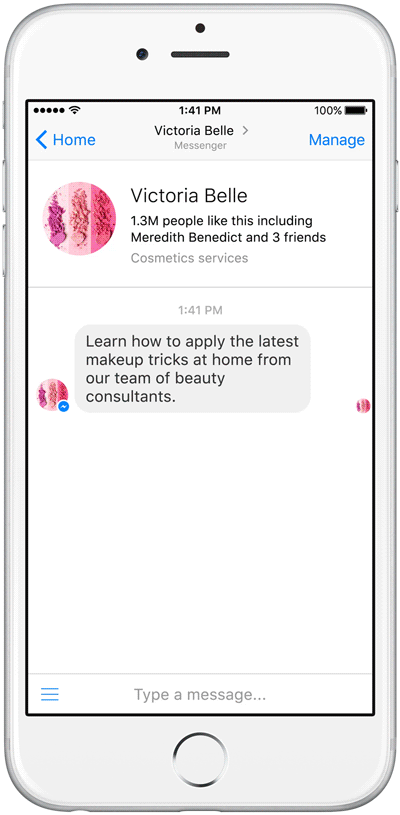Want smarter insights in your inbox? Sign up for our weekly newsletters to get only what matters to enterprise AI, data, and security leaders. Subscribe Now
Facebook has made policy changes to speed up reviews of chatbots on Messenger and allow chatbots to send subscription-based messages, as well as promotional messaging.
Under the old policy, a travel bot that helps people purchase plane tickets could not upsell them to a hotel room or rental car. Under the new policy, marketing and promotional messages, which were prohibited in Messenger previously, are now permitted, opening the door to product placement, native advertising, and other forms of solicitation with messages — but there are limits, Facebook product manager Seth Rosenberg wrote Monday in a blog post.
“All conversations between businesses and people must be initiated by the person receiving the messages, who can then mute or block the business at any time,” Rosenberg wrote.
Developers and others who use Messenger’s Send/Receive API must now respond to a user’s message within 24 hours. After the 24-hour period has passed, businesses or developers using the API may only send a single message. Each interaction resets the clock.
AI Scaling Hits Its Limits
Power caps, rising token costs, and inference delays are reshaping enterprise AI. Join our exclusive salon to discover how top teams are:
- Turning energy into a strategic advantage
- Architecting efficient inference for real throughput gains
- Unlocking competitive ROI with sustainable AI systems
Secure your spot to stay ahead: https://bit.ly/4mwGngO
News, productivity, and personal tracker (wearable data or personal finance for example) bots and Messenger accounts are now eligible to test subscription messaging in beta. Subscription messages do not have to follow this new 24-hour rule. User must opt in to receive subscription messages, and the old no-promotion or solicitation rules still apply.
“If a user responds to a subscription message via one of the eligible actions listed below, then that shifts the conversation into standard messaging and all eligible rules apply,” Rosenberg stated.
The bot review process for new bots has been shortened to five days or less.
Existing users of the Send/Receive API will have three months to comply with the standard messaging rules and six months “to submit their experience for the new subscription permission,” Rosenberg wrote.

Last month, Messenger announced that it has surpassed one billion monthly active users, making it the second most used largest messaging app on the planet behind WhatsApp, also owned by Facebook.
Since opening its Messenger platform to bots at the F8 conference in April, Facebook has made several changes to Messenger, including the incorporation of rich media like GIFs, as well as buttons, cards, and menu for Messenger bots. More than 18,000 bots have been made on Facebook Messenger, and more than 23,000 people have signed up to the company’s Wit.ai bot engine to leverage its natural language processing capabilities.


